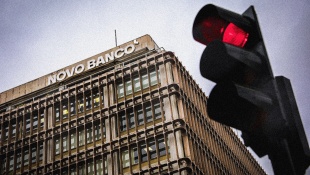Since the scandalous handing of Novo Banco to the Lone Star fund, in 2017, the PCP has denounced the pernicious nature of the deal and the submission of the Portuguese Government to large economic groups and to the impositions of the European Union. The PCP opposed this deal, demanded its reversal and denounced the intention of favouring private interest over public interest, also alerting to the possibility that debts contracted during the pre- collapse of BES bank were being cleaned with public funding
The Audit Report on the management of Novo Banco with Public Funding by the Court of Auditors, following the 2021 audit report, demonstrates and reiterates the absence of effective control mechanisms over the process of disaffection of assets under the capital mechanism quota. As the PCP had denounced since the release of the agreement to hand over Novo Banco to Lone Star, the private shareholder would do everything to consume that capital, which the Court of Auditors now confirms.
Essentially, the report demonstrates that public interest was not safeguarded and that the private shareholder did everything to consume the maximum amount of capital, harming public interest.
At the same time, there is the possibility of public funding extending beyond 2021 and restated the public nature of the Resolution Fund, as well as the resulting public nature of its debt, as the PCP has stated since its constitution.
Eight years after the application of the resolution to BES, carried out by the PSD/CDS Government, and five years after the handing of Novo Banco to a private group, carried out by the PS Government, the costs for the Country with this banking institution amount to 9 billion euros without the State having a say in the most elementary options of its management and without intervening, either through the Ministry of Finance, through the Bank of Portugal or the Resolution Fund, for a management to serve public interest. A finding that reinforces the need to ensure public control of Novo Banco and its integration into the public banking sphere, constituting a new pole in public banking, capable of functioning as a true “development” bank to support the economy and SMEs.

